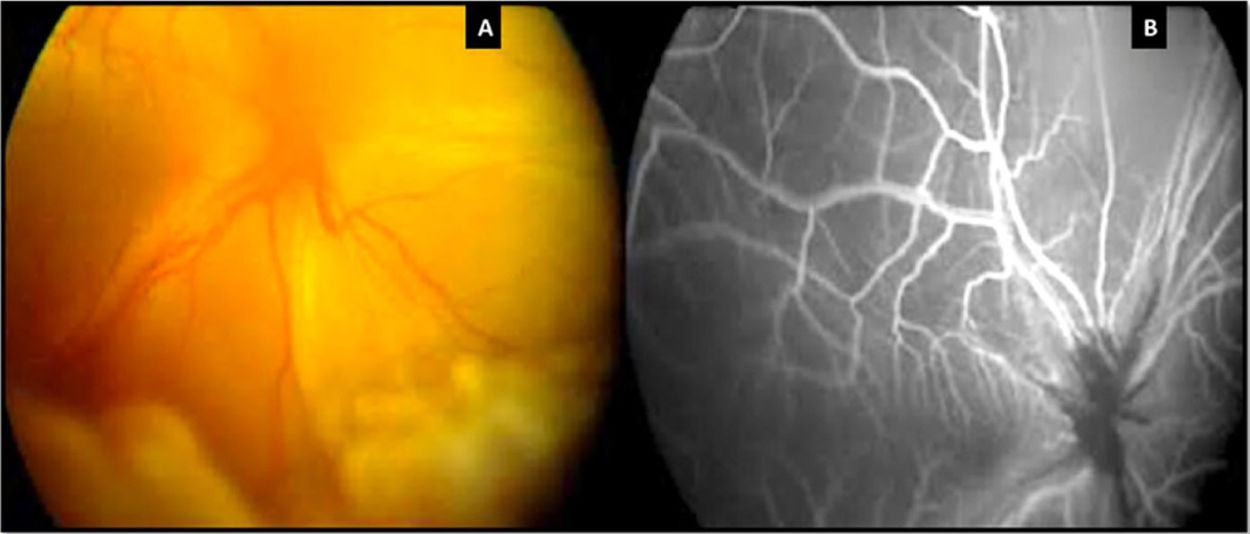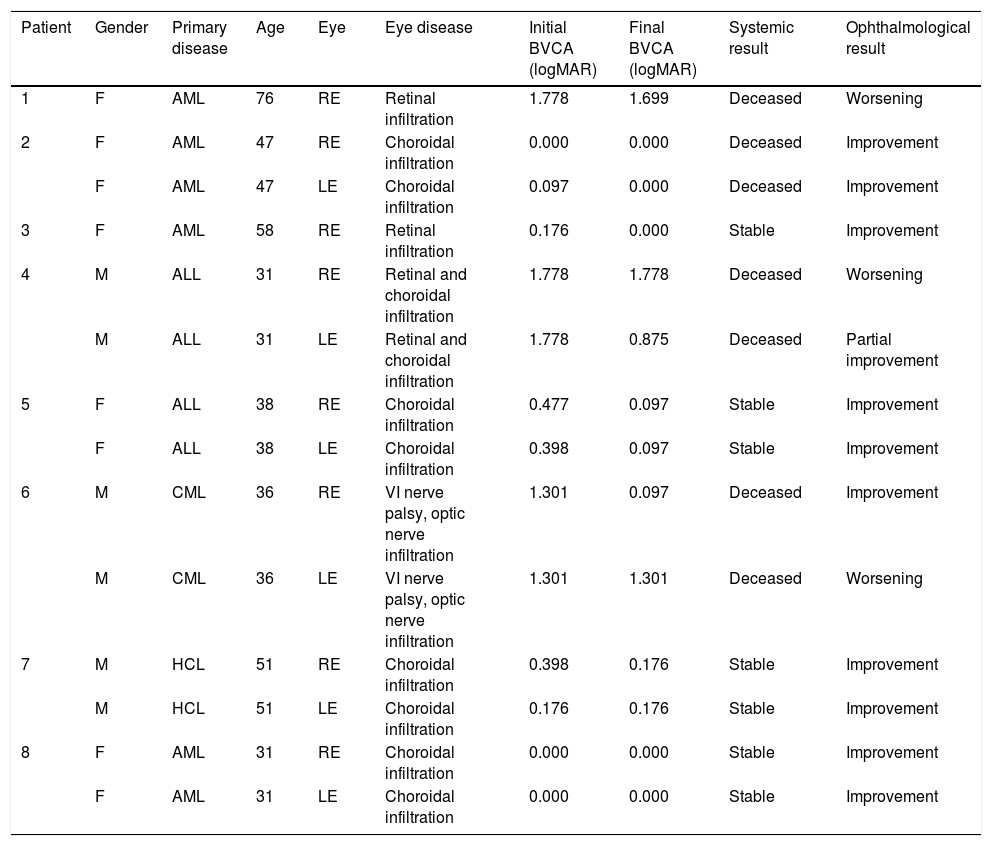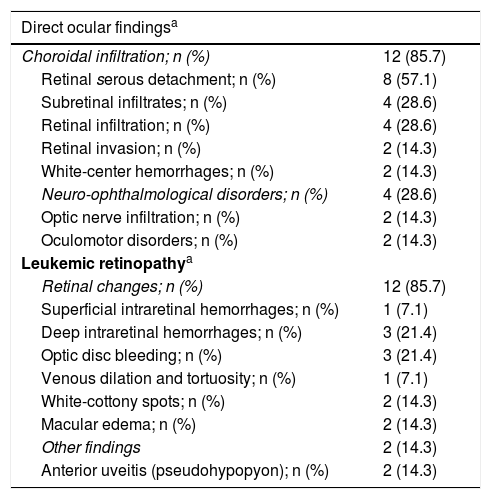To report the ocular manifestations in patients with leukaemia.
MethodsThis is a retrospective, descriptive and observational study in patients with ocular manifestations of leukaemia.
ResultsA total of 14 eyes were evaluated corresponding to 8 patients (5 women and 3 men) with ocular manifestations of leukaemia. The mean age at diagnosis was 43 years (31–76 years). Six eyes corresponded to patients with Acute Myeloid Leukaemia (AML), four eyes to Acute Lymphoid Leukaemia (ALL), two eyes to Chronic Myeloid Leukaemia (CML), and the remaining two belonged to patients with Hairy Cell Leukaemia (HCL). The primary ocular findings were choroidal invasion in 12 eyes (85.7%), retinal infiltration in 4 eyes (28.6%), and neuro-ophthalmic disorders in 4 eyes (28.6%). The mean visual acuity improved from 0.689 to 0.449 (logMAR) (P = .012) after the systemic and intrathecal chemotherapy. Of the eight patients, four died from systemic complications of the underlying disease.
ConclusionsThis is the first report of multiple ocular manifestations secondary to leukaemia in a Colombian population. It is important to keep in mind that this disease is included within the masquerade syndromes and that the ophthalmological findings that, while subtle, can also be devastating and be signs of a life-threatening disease.
Reportar las manifestaciones oculares en paciente con leucemia.
MétodosEstudio observacional analítico de corte transversal, en pacientes con manifestaciones oculares por leucemia.
ResultadosSe evaluaron 14 ojos de 8 pacientes (5 mujeres y 3 hombres) con leucemia. La edad promedio al diagnóstico de leucemia fue 43 años (31-76 años). Seis ojos correspondían a pacientes con Leucemia Mieloide Aguda (LMA), cuatro ojos a pacientes con Leucemia Linfoide Aguda (LLA), dos ojos a pacientes con Leucemia Mieloide Crónica (LMC) y dos ojos a pacientes con Leucemia de Células Peludas (LCP). Los hallazgos oculares primarios fueron: invasión coroidea en 12 ojos (85,7%), infiltración retiniana en 4 ojos (28,6%) y desórdenes neuroftalmológicos en 4 ojos (28,6%). La agudeza visual promedio mejoró de 0,689 a 0,449 logMAR (p 0.012) luego del tratamiento con quimioterapia sistémica e intratecal. De los 8 pacientes, 4 murieron debido a complicaciones de su enfermedad.
ConclusionesEste es el primer reporte de múltiples manifestaciones oculares secundaria a leucemia en una población colombiana. Es importante tener en cuenta que este tipo de manifestaciones hacen parte de los síndromes de enmascaramiento por lo tanto es primordial hacer un diagnóstico y manejo precoz ya que en ocasiones está en riesgo la vida del paciente.
Artículo
Comprando el artículo el PDF del mismo podrá ser descargado
Precio 19,34 €
Comprar ahora















